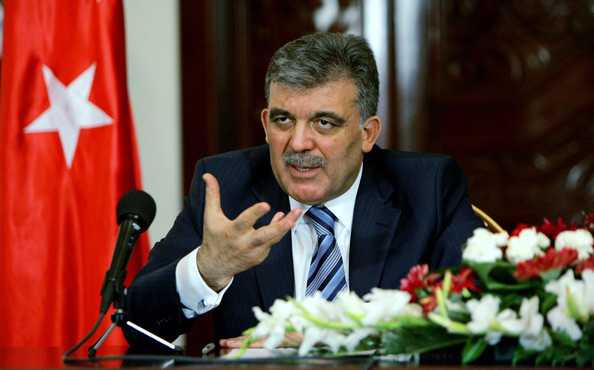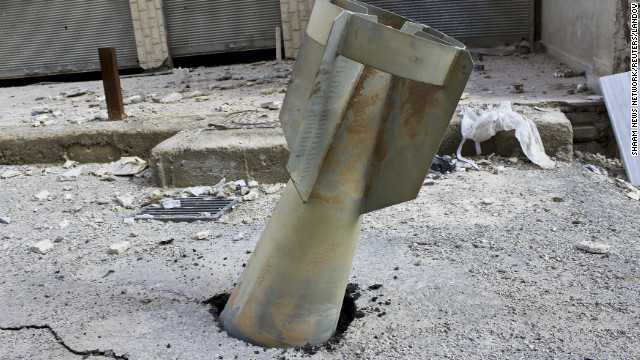Interview by Arzu Turgut (JTW)
Translation by Firat Guzeldag (JTW)
In the last few days, major newspapers all around the world have started to publish some secret US governmental documents which have been recently revealed by Wikileaks website. World is discussing whether these documents will create a diplomatic crisis and what will be America’s next step towards the issue. Turkey and its stance towards Wikileaks documents are also seen crucial due to the fact that these documents contain lots of allegations on Turkey. Journal of Turkish Weekly conducted an exclusive interview with Professor Ihsan Bal, Head of USAK Centre for Security Studies, on Wikileaks documents and its impact on both the world’s agenda and the US-Turkey Relations.
Question: The atmosphere created due the leakage of some confidential US documents by Wikileaks was labelled as “Diplomatic September 11”. Does really disclosure of confidential US diplomatic documents jeopardize US diplomatic relations all around the world? How do you assess the reveal of these documents from Turkey’s perspective? What kind of stance should be taken by politicians, the state officials and society?
Prof. Ihsan Bal: First of all, we should acknowledge that making exaggerated comments which were solely based on Wikileaks documents would be illusory. It is true that some Wikileaks documents limitedly revealed some important points; however it did not display anything new that the world has no opinion about. We should also underline that some kind of information leakages had also occurred in the past even it had not happen at this extensive degree and had not lead to a great embarrassment on the part of the US. The invasion of US Embassy in Iran at the end of 1979, and the early 1980s, where some documents publicly revealed about the relations of Turkey, Iran and the US, and the information war between the KGB and the CIA during the Cold War can be given as examples to this kind of information leakages.
Today’s Wikileaks incident can be accepted unique in terms of its peculiarities related to information age. Firstly, Wikileaks documents came to the scene through the use of today’s advanced technology which facilitates the spread of the information to the every corners of the world. More importantly, this leaking activity took place on a very large scale in an uncontrolled manner. Secondly, US took a defensive position in face of the issues pouring out of these documents. Thirdly, it is important that these published documents are important in terms of being raw materials which were transferred by those in different countries to the centre. However, it is certainly true that these documents do not directly reflect the official US’s opinion and common views of its missions. Fourthly, US have faced lots of espionage incidents so far, but what happened today took place in the information age so it seems very important in terms of its accessibility and broader effects. Therefore, today, US have to exert more serious effort and to struggle with this crisis in order to face and mitigate it than it had did in the past. In fact, we have already known that US has successfully contact with some countries about the documents in order to secure its national interests prior to the reveal of the documents. It can be said that this information leakage has become a shame for the United States. The last point we have to pay attention is about the risks of “counter wave” that can emerge in the world in case of these raw documents obtained from US’ representatives in various countries are analyzed by semi-experts. There is a Turkish proverb on this subject that warns against the devastating effects that incomplete knowledge can cause. This means that we should be aware of the misleading aspects of partial knowledge on something that can possibly lead to defective assessment, because lack of true information can easily become sources of ambiguities, informational pollution and information wars.
It would be misleading to assert that diplomatic history has been re-written or re-established by Wikileaks documents. Wikileaks documents did not make publicly appear something new. As we have known already, not surprisingly, Israel, the United States and Russia attempted similar kinds of actions in the past. As for the related parts of Wikileaks documents based on allegations about Turkey, it is not difficult to realized that many of them have been already discussed both in Turkish and international media so far. For instance, the issues such as the radicalization of Turkey and the advance of conservative Islamic line in the country have been already publicly discussed. The topics addressing to the Iranian-Turkish relations, army-government relations and particularly memorandum of March 27 have been known even before these documents were appeared. Frankly, we already knew all of them and there is nothing new and surprising for Turkey in these documents. The allegations on corruption might occupy the Turkish public agenda for a while. However, these claims also lack strong proofs. Moreover, Turkey is a country where such kind accusations on corruption have been frequently directed to some politicians and important figures, so this is not also something new for Turkish people.
Turkey has been slightly affected from 2008 economic crisis compared to the other states in the world. Having lessons learned from 2001 economic crisis, Turkey was well prepared in face of any economic and political crises. Moreover, Turkey successfully adapted itself to difficult conditions by strengthening its economy and finance sector before and after the economic crisis in 2008. Furthermore, we could note that Turkish population became also familiar to these kinds of leakage events. Thus, these all experiences and learned lessons prevented Turkey from negative effects of these kinds of crises. In Turkey, it is not difficult to see similar allegations in some conspiracy books, Ergenekon Case and PKK issue. This means that by creating some conspiracy theories, it becomes ordinary to accuse someone of taking part in Masonic activities, or to discuss on some official documents and military confidential offices where the state’s secret documents were kept. In this context, we could assume that Turkey has already developed an immunity system enabling itself to become stronger towards the crises.
For these reasons abovementioned, unlike the Western countries where Wikileaks documents have already created a negative atmosphere, Turkey can remain enough stronger to overcome this issue as long as Turkish politicians and state officials give calm and constructive statements. They should handle the process in a coldblooded manner so that we save ourselves from the detrimental effects of this crisis of global information war. We are responsible to analyze the Wikileaks documents carefully. Above all, these documents are not primary resources but only general assessments from various countries and do not contain deep, concrete analysis and reliable information. Therefore, there is no need to make a shift in foreign policy. These kinds of information and documents are, of course, vital for states and metaphorically could be seen as “bedrooms of the countries”. Hence, like the privacy of personal life, the privacy of states must also be protected and respected.
It is sure that every country in the world has this kind of confidential documents. Moreover, when the states’ responsibilities and duties considered and their interests are stake, states cannot remain transparent about all issues. In fact, they hold secret documents even they made some classification on their secrecy level. However, what happened today is the reveal of some secret documents of the US, having super power status in the world, is seen a very sensational event.
Q: According to Wikileaks documents, Saudi King Abdullah asked for an US attack on Iran in order to destroy Iran’s nuclear facilities. In that respect, can we assume that these accusations might damage the relations and stability in Middle East? Within the framework of this information, what do you think about the fate of Middle East and Turkey’s role in the region in future?
Prof. Bal: Mainly, there are two attitudes in foreign policy. Firstly, states use “soft and constructive” language and the second is more “hard” one which based on more aggressive reactions. In that respect, when we look at the region languages and attitudes of the states are clear. In other words, everybody knows which state in the region use what kind of instruments. Therefore, it is certainly true that Turkish foreign policy towards the Middle East based on prevention of conflicts and crises and disarmament. Iran’s foreign policy is based on tension and conflict, unlike Turkey. Iran’s relatively calm response towards Wikileaks documents seems surprising to me.
Considering its disagreements with Iran, Saudi Arabia’s demands from US are not unreasonable at all. Iran attempts to expand the Shiite influence and the Arab states are not happy with that. It is clear that Iran and Arab states have been involved in a dispute due to the conflicting interests in the region. Moreover, Iran aimed to expand its influence zone by addressing and targeting the common enemy, Israel. In addition, Saudi support for terrorist organizations is not a new phenomenon. In other words, we have already known the Saudi involvement and support for terrorist activities.
Actually we have a more serious question to ask: “Who started this information war? “ Raw information is always dangerous and it might lead serious problems and consequences unless competent specialists work on it. Moreover, it seems also very difficult to find out to what degree these documents were censored unless the power behind this leakage become known. Commenting on who is behind this leakage event would be only speculation; therefore I do not want to guess here. The answer to timing would be also meaningless for now, unless we know who revealed these documents. Such information leakages mostly damage the countries which do not have any rational policies to struggle with these kinds of incidents. Therefore, countries have to be careful on their reactions.
Q: How do Wikileaks documents affect USA in terms of human rights and democracy at both national and international level?
Prof. Bal: The US torture at Guantanamo Bay and Ebu Gureyb Prison has been largely discussed by the Americans themselves. American press has enough freedom to discuss this issue. Moreover, American press has published every kind of news from all around the world, so US citizens freely questioned US’ torture and policies and forced the government to take into consideration their own actions. It is clear that these kinds of documents damaged US national interests. However, this situation is much related to US isolationist policies. US needs to interrogate its own democracy in its home.
On the other hand, we should ask which states could severely criticize the US due to their actions. Is it Russia? Is China? It is, of course, important to put out the mistakes of the US but any country cannot be seen more innocent in terms of these kinds of confidential documents. Furthermore, states have tendency to conceal each other’s mistakes. There is not any regional power to take steps towards revealing all the facts related to the other states, since no one can dare to realize that.
Of course, USA faces critical and serious examination because of the Wikileaks documents and its related problems. In other words, USA has to make considerable efforts to solve diplomatic problems which are caused by Wikileaks. The accuracy and controversial remarks of these documents might discuss but, more importantly, the process has already begun. Moreover, USA will have to face against this new resistance and negative impacts of these documents in all international meetings and workshop activities which will hold in the days to come. In other words, USA lost once again its credibility and now, it has to spend more time to convince its allies and international public opinion on its actions. In this sense, the OSCE Summit in Astana on December 1-2 that Hillary Clinton will also participate is seen very important. She probably be asked more questions and faced negative approach, therefore we will have chance to analyze US’ way of respond through Hillary Clintons’ attitude. It is clear that she has to exert extra effort in order to mitigate the damage that Wikileaks documents have caused. U.S. Secretary of State Hillary Clinton, “People of good faith understand the need for sensitive diplomatic communications, both to protect the national interest and the global common interest. Every country, including the United States, must be able to have candid conversations about the people and nations with whom they deal. And every country, including the United States, must be able to have honest, private dialogue with other countries about issues of common concern […]” said. Clinton also expressed confidence that U.S. diplomatic efforts around the world will survive the leak of the documents. “I can tell you, in my conversations, at least one of my counterparts said to me, ‘Don’t worry about it; you should see what we say about you,” she said. She also added, “the concern about Iran is well-founded, widely shared and will continue to be at the source of the foreign policy that we pursue with like-minded nations to try to present Iran from acquiring nuclear weapons. […] Once the countries evaluated the evidence concerning Iran’s actions and intentions, they reached the same conclusions that the US reached: that we much do whatever we can to muster the international community to take action to prevent Iran from becoming a nuclear weapons state.”
Q: According to Wikileaks documents, U.S. Ambassador to Turkey, James Jeffrey stated that Turkey couldn’t conclude its initiatives that it had taken in the region so far. In particular, he linked this analysis with Turkish-Armenian Protocols and long term oriented statements of Davutoglu. In this regard, could Turkey really not become successful in its initiatives and regional role? Lastly, is there any possibility to create negativity on Turkish-Armenian relations?
Prof. Bal: As we mentioned before, there are different expressions and documents towards the issue. We haven’t known the truth level and analysis of these documentations. At this point, we should be careful not to make a methodological mistake. Some groups, of course, criticize the attitude of contemporary Turkish foreign policy in terms of its role on peacemaking or preventing the problem. Actually this situation has already known by the society. In fact, in last few months there was a discussion going on about Turkey’s axis shift from West to East. In this regard, there is a similarity on issues which have been revealed by Wikileaks. All in all, Turkey is not facing a new phenomenon and has already given necessary answers to the debate on axis shift.
There are considerable achievements in Middle East politics of Turkey. Apparently, there are significant improvements in the Turkish- Lebanese and Turkish- Pakistani relations as well. Moreover, Turkey plays crucial role in re-building process of the Balkans. I would also consider the Turkey’s role in improvement of Syrian-Lebanese, Syria-Saudi Arabian and Turkish-Armenian relations. To be honest, some problems could not solve over night. Maybe we could not be successful in some cases but we take constructivist steps towards those frozen problems. In addition, there is a significant improvement on Turkish- Russian relations, too. Importantly, we should know that Turkish foreign policy could not be evaluated as a whole.
As for the possible negative effects of Wikileaks documents on Turkish-US relations, the issue has been clarified by Turkish Foreign Minister, Ahmet Davutoğlu during his visit to Washington. He stated that the accusations in the documents can/will not harm the fundamental tenets of Turkish Foreign Policy and Turkish-American relations. Therefore, Davutoglu’s approach seems very positive and constructive despite USA despite some American diplomats called him as a dangerous man. He argues that Turkish Foreign Policy has principled, time-tasted and transparent vision including Turkey-US relations in that manner. Furthermore, U.S. Secretary of State Hillary Clinton said:
“United States deeply regrets the disclosure of any information that was intended to be confidential, including private discussions between counterparts or our diplomats’ personal assessments and observations. I want to make clear that our official foreign policy is not set through these messages, but here in Washington. Our policy is a matter of public record, as reflected in our statements and our actions around the world. […]So let’s be clear: this disclosure is not just an attack on America’s foreign policy interests. It is an attack on the international community – the alliances and partnerships, the conversations and negotiations that safeguard global security and advance economic prosperity.”
In conclusion, Wikileaks does not show new phenomenon. In fact, Turkey couldn’t find anything new from Wikileaks documents. Moreover, we have already known that this kind of leakage has already occurred in Turkish domestic politics; therefore this leakage can be accepted by the society as limitedly normal in a sense. However, Turkish state officials and politicians should make their speeches in a very rational way and they should not be reactive in this issue. Turkey has already undertaken responsibility in order to protect diplomatic relations with the US. However, this does not mean that the US probably will not damage from this diplomatic crisis on its part. The US seems to make enormous efforts in order to increase its credibility and trust in the days to come.






